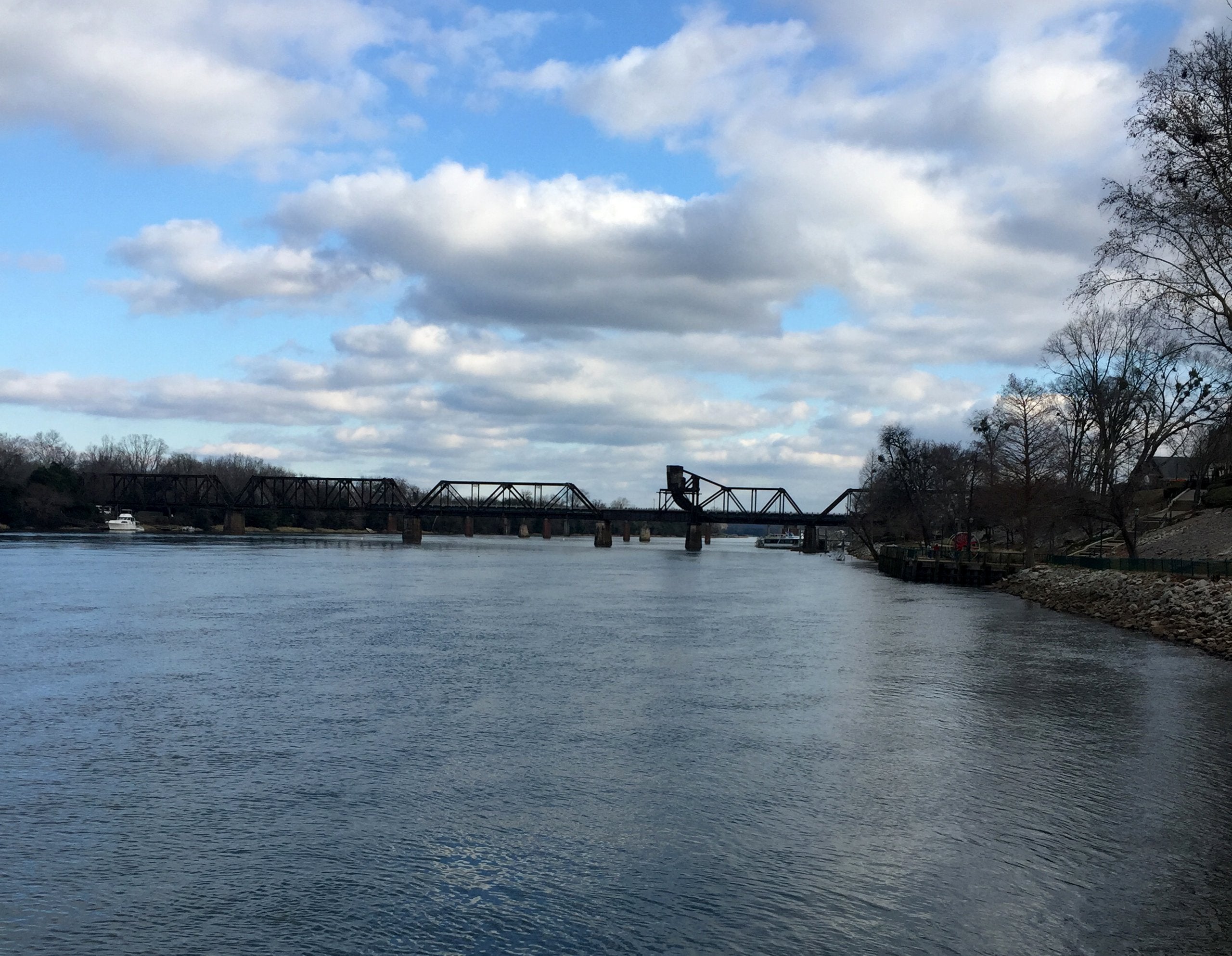U.S. Rep. Rick Allen (R-Ga.) testified before the House Transportation and Infrastructure Committee on March 16 to lobby for funding to repair and maintain the New Savannah Bluff Lock and Dam.
Allen asked the committee to consider using funds from the Water Resources Development Act to modernize the dam or at least prevent further deterioration but did not request a specific dollar amount.
MORE: Officials disagree about cutting down trees at the Augusta Common
The issue of whether to keep the dam has been tied up in federal court for six years as the Army Corps of Engineers have battled to demolish the dam and replace it with a rock weir.
Multiple studies have shown that a rock weir cannot support the current pool level in downtown Augusta, and removal of the dam would reduce the pool several feet and would negatively impact property values on both sides of the river.
[adrotate banner=”51″]
Previous tests have left docks high and dry, caused banks to collapse and turned the area into a giant mudflat.
According to Allen, removing the dam would be catastrophic to the two-state area.
“As the world gets a glimpse at Augusta in a few weeks as home of the beautiful Masters golf tournament, to cause the view from beautiful downtown Augusta to be that of areas of dry mud and silt instead of a flowing river would be unconscionable,” Allen said.
The dam is already protected under the 2016 Water Infrastructure and Improvements Act, but Congress has never appropriated any funding directed at the lock and dam.
MORE: Changes along Washington Road proposed for Augusta National’s north campus
After decades of lax maintenance, partly due to a lack of funding from Congress, the dam is starting to show its age. According to Dale Reddick of Savannah Riverkeeper, the Corps of Engineers is having to constantly patch cracks in the structure and recently discovered that a large hole in the dam is being created by erosion.
The Savannah Harbor dredging project brought up the issue of how to protect the endangered sturgeon fish, which caused the fate of the lock and dam to go into mediation. The Corps of Engineers favor the rock weir since it would open back up historic spawning areas for the endangered fish.
[adrotate banner=”15″]
In January 2021, the Corps announced it would appeal the 2020 verdict of South Carolina District Judge Richard Gergel who issued an injunction barring the Corps from demolishing the dam. However, there has not been any movement on the legal battle as of late.
Gergel ruled that the Corps plans violated the 2016 Water Infrastructure Improvements for the Nation Act, or WIIN. According to the act, Gergel reasoned that the Corps could remove the structure if it is replaced with another structure that maintains the current pool.
The Lock and Dam, built in 1937, is not a hydroelectric facility but was built as a sort of canal lock system so that barge traffic could reach the old port of Augusta. The port of Augusta no longer exists, and barges no longer bring in cargo from downriver.
Allen implored the committee to work with him and U.S. Rep. Joe Wilson (R-S.C.) to finally come to a solution to the issue.
Scott Hudson is the senior reporter for The Augusta Press. Reach him at scott@theaugustapress.com











